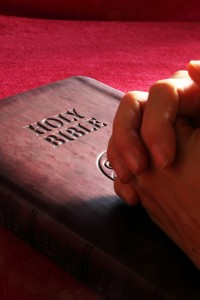 DENVER — The Colorado Supreme Court has thrown out a lawsuit by a professing atheist organization that challenged proclamations in recognition of the National Day of Prayer, overturning a lower court ruling that declared such proclamations unconstitutional.
DENVER — The Colorado Supreme Court has thrown out a lawsuit by a professing atheist organization that challenged proclamations in recognition of the National Day of Prayer, overturning a lower court ruling that declared such proclamations unconstitutional.
As previously reported, in 2008, the Freedom From Religion Foundation (FFRF) sued then-Governor Bill Ritter for “showing governmental preference for religion” by issuing the Day of Prayer designation, asserting that in doing so, Ritter violated the Religious Freedom Clause of the Colorado Constitution.
In 2010, a district court ruled against FFRF, stating that it found no constitutional infringement.
“Plaintiffs argue that the proclamations excessively entangle government and religion because it facilitates the Colorado Day of Prayer festivities. In light of the fact that most festivities are planned well in advance of the proclamation’s issuance, this argument is not credible,” wrote Judge Michael Mullins. “Announcing that people will in fact gather to celebrate a public holiday does not necessarily involve the state in any way in the planning of religious activities.”
However, FFRF then appealed the case to the Colorado Court of Appeals, which overturned Mullins’ ruling.
“[The proclamations] encourage Colorado’s citizens to ‘unite’ with those who believe in God and pray to God for the benefit of our country, our state, our leaders, and our people. In so stating, they reflect an official belief in a God who answers prayers,” the three-judge panel wrote. “At the same time, for those who do not believe in such a God, the proclamations tend to indicate that their nonbelief is not shared by the government that rules the State. In doing so, they undermine the premise that the government serves believers and nonbelievers equally.”
The state then filed an appeal with the Colorado Supreme Court, which agreed to hear the case. Other legal groups, such as Alliance Defending Freedom (ADF) soon joined in, asking the court to look to notable Supreme Court rulings, which cited that even the Founding Fathers engaged in legislative prayer, and that the Establishment Clause evidently was not written for such incidents.
On Tuesday, the court ruled 5-2 that the Freedom from Religion Foundation had no standing to challenge the prayer proclamations, opining that the group failed to show any harm caused by the governor’s call to prayer.
“Although we do not question the sincerity of respondents’ feelings, without more, their circuitous exposure to the honorary proclamations and concomitant belief that the proclamations expressed the Governor’s preference for religion is simply too indirect and incidental an injury to confer individual standing,” wrote Chief Justice Nancy Rice.
“To hold otherwise would render the injury-in-fact requirement superfluous, as any person who learned of a government action through the media and felt politically marginalized as a result of that secondhand media exposure would have individual standing to sue the government,” she stated.
Colorado’s Attorney General-elect, Cynthia Coffman, praised the decision, stating that it allows government officials to continue to freely acknowledge God.
“This decision by the state’s high court means that like the president of the United States and other governors around the country, Colorado Gov. John Hickenlooper and future Colorado governors are free to issue honorary proclamations without fear of being tied up in court by special interest groups,” she said. “It was the correct ruling by the justices after careful consideration of the issues.”
ADF Senior Counsel Michael Norton agreed.
“Public officials remain free to issue such proclamations in the years ahead just as the founders of our country and the state of Colorado were free to do,” he said. “This is a freedom not only rooted in our history; it is a constitutionally protected freedom clearly recognized in both state and federal courts.”
Throughout America’s early history, a number of the Founding Fathers issued proclamations calling inhabitants to prayer, including in 1798, when President John Adams proclaimed a national day of humiliation, prayer and fasting.
“As the safety and prosperity of nations ultimately and essentially depend on the protection and blessing of Almighty God, and the national acknowledgment of this truth is not only an indispensable duty which the people owe to Him,” he wrote, “…this duty, at all times incumbent, is so especially in seasons of difficulty and of danger, when existing or threatening calamities—the just judgments of God against prevalent iniquity—are a loud call to repentance and reformation.”
Become a Christian News Network Supporter...


